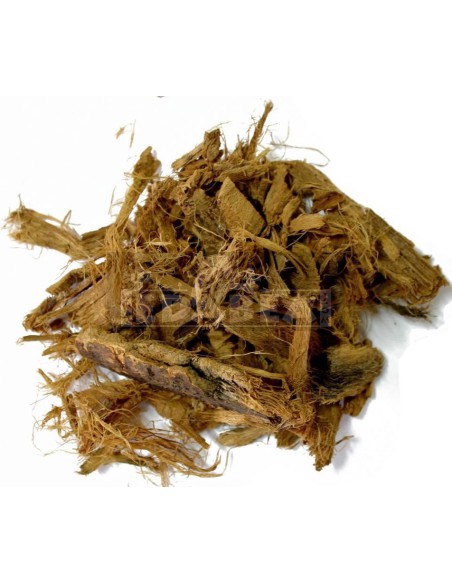Mulungu 80 grs.
Mulungu has long been used in Brazil by indigenous people as a natural sedative: it is used to calm an overly excited nervous system, nervous coughs, and to treat other nervous system problems, including insomnia and anxiety.
Order it before 13:00 on Monday and receive it 4/8/25 with NACEX EXPRESS
The mulungu tree is known by two botanical names: erythrina mulungu and erythrina verna. It is a very beautiful tree, sometimes called "coral-flower", because its flowers have a color resembling orange coral. Mulungu is known as one of the most powerful spontaneous-growing plants.
Effects
Many species of erythrina are used by the indigenous people of the Amazon to make remedies, insecticides, and fish poisons. Mulungu has long been used in Brazil by the indigenous people as a natural sedative: it is used to calm an overly excited nervous system, nervous coughs, and to treat other nervous system problems, including insomnia and anxiety.
It is also widely used to treat asthma, bronchitis, liver and spleen inflammations, intermittent fevers, and liver impurity. Both in Brazil and Peru mulungu is used against epilepsy. Positive regulating effects of cardiac palpitations and decrease of the arterial pressure were also verified.
The chemical substances present in mulungu were extensively studied; it was found that they include large amounts of (new) flavonoids, triterpenoids, and alkaloids. Two studies also indicate that one of these alkaloids, erysodin, may be useful as an antinicotine drug, because it was shown to act as a competitive antagonist and block nicotine receptors.
The main natural remedy sold worldwide today against stress and anxiety, and as a sedative in general, is kava kava. This plant has been subject to negative stories in recent years regarding possible counter effects on the liver. As mulungu has the same calming and stress-regulating effects (if not better), and has a positive effect on the liver, it is indicated as the new substitute for kava kava.
Usage
About half a cup of a normal root decoction (per day) should be sufficient and safe.
A decoction is usually made with 1 teaspoon of powdered herb or 2 teaspoons of chopped herb per 250 ml of boiling water. Then cover the saucepan or reduce the flame to a minimum, so that the mixture boils slowly for 20 minutes. After this it is left to cool, filtered, and consumed.
Notice
- Mulungu is a sedative and may cause drowsiness.
- In traditional medicine the plant is used to lower blood pressure. Clinical studies with animals have shown hypertensive effects. It is therefore advised for those who take medicines to lower blood pressure (or if you have low blood pressure), use mulungu with due caution and regular monitoring of blood pressure.
Mulungu is not a medicine, do not use it as such.


